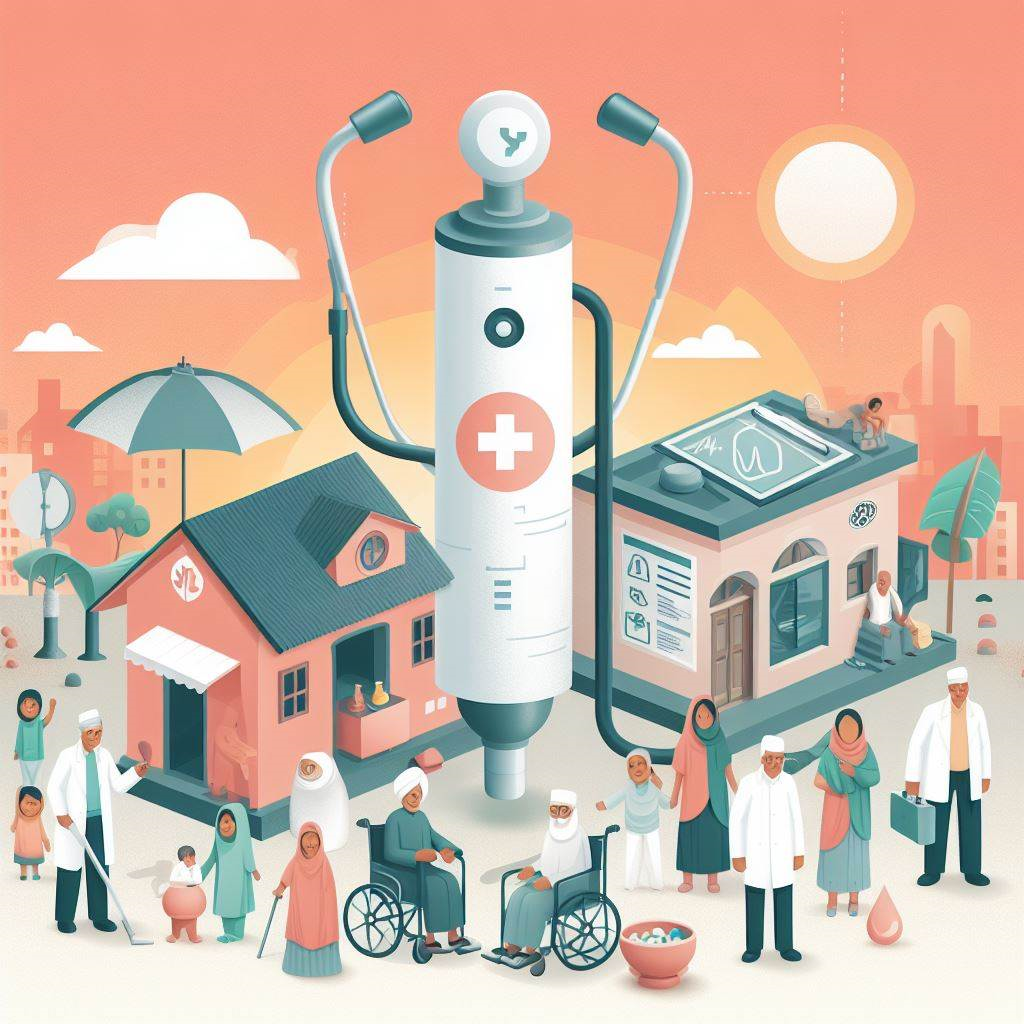
Introduction
Following the COVID-19 crisis, there is a growing global focus on the critical function of the primary healthcare (PHC) system in low- and middle-income countries (LMIC). This system is acknowledged as indispensable for attaining universal health coverage (UHC), serving as a cornerstone in delivering fair and effective healthcare services. Particularly in LMIC nations, primary healthcare plays an important role in ensuring health system resilience. Its significance is emphasised as a key element in providing accessible and quality healthcare services to diverse populations. The emphasis on primary healthcare in these regions highlights its essential role in promoting health equity and sustainable healthcare delivery.
Enhancing Primary Healthcare Systems Post-COVID
PHC, often underestimated in the past, is now recognised as the cornerstone for meeting 80–90% of individuals’ health needs across their lifetimes. Therefore, it is a critical need for nations to build up investments in their primary healthcare systems to ensure comprehensive care and financial security for their populations.
Strategies for PHC Advancements
A groundbreaking study has outlined five key strategies essential for reshaping PHC systems in LMIC: focusing on client-centric services, embracing digital innovations, reinvesting in efficiency enhancements, refining management practices, and fostering community engagement. These tailored strategies play a vital role in driving sustainable health outcomes and achieving Universal Health Coverage and Sustainable Development Goals by 2030.
Closing the Resource Gap: Insights from Costing Analyses
Research conducted in Nigeria, Ethiopia, and Kenya highlights the current resource gaps in providing essential healthcare services. This study emphasises the need to close these resource deficits through increased domestic investments, updated benefit offerings, and improved provider payment systems. These measures will increase the efficiency and effectiveness of PHC in LMIC.
Innovative Approaches to Health Financing
Studies conducted in Tanzania and China examines strategic purchasing mechanisms and their effects on health expenditure. While efficient allocation methods such as Direct Facility Financing and Results-Based Financing display potential benefits, it is crucial to consider unintended repercussions. As an example, the zero-markup drug policy (ZMDP) in Shanghai aimed to reduce out-of-pocket health expenditure. However, it did not decrease total health expenditure. Hospitals compensated by increasing earnings through other services. On the other hand, community-based health insurance schemes in Ethiopia showcase the ability to elevate beneficiary contentment and enhance health financing structures.
Empowering Primary Healthcare Workforce
Supporting the integration of community health workers (CHWs) and neighbourhood pharmacies into PHC delivery systems shows potential in broadening service coverage. Utilizing these platforms, in addition to inventive strategies such as school-based health initiatives, presents a distinct opportunity to improve PHC accessibility and quality.
Key Points
- Accessibility: PHC services should be easily accessible to all individuals, regardless of their socio-economic status or geographic location.
- Comprehensiveness: PHC aims to provide a wide range of health services, including preventive care, treatment of common illnesses, and management of chronic conditions.
- Community-based: PHC is designed to meet the specific health needs of the community it serves, taking into account local customs, beliefs, and practices.
- Preventive Care: Emphasis is placed on preventive measures such as vaccinations, screenings, and health education to promote overall well-being and reduce the risk of illnesses.
- Coordination: PHC involves coordinating care across different healthcare providers to ensure seamless and efficient delivery of services to patients.
- Holistic Approach: PHC considers the physical, mental, and social aspects of health, aiming to provide comprehensive care that addresses the overall well-being of individuals.
- Affordability: PHC services should be affordable and cost-effective, ensuring that financial barriers do not prevent individuals from accessing necessary care.
- Empowerment: PHC empowers individuals to take control of their health through education, support, and involvement in decision-making about their care.
Toward Universal Health Coverage: The Road Ahead
These key points collectively contribute to the effectiveness of primary health care in promoting health, preventing diseases, and improving the overall quality of life for individuals and communities. With the clock ticking on achieving Sustainable Development Goals, these insightful articles serve as guiding lights, offering actionable strategies for transforming PHC systems in LMICs. In conclusion, the urgency and complexity of this transformation underscore the need for collaborative efforts and innovative solutions to meet the evolving health and financial needs of vulnerable populations.
